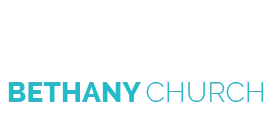What Comes Around Goes Around: The Corrosion of Self-Preservation
As December begins, the festive spirit is upon us, and the countdown to Christmas has begun. Yet amidst the joy and anticipation, it’s a good time for reflection. A recent visit to Sizergh Castle in Kendal provided some food for thought. This historic home of the Strickland family serves as a parable for our times, illustrating how a legacy built on self-preservation can crumble. Once wealthy and influential, the Stricklands’ estate now largely belongs to the National Trust, with only a fraction still inhabited by their descendants.
The story of Sizergh Castle brought to mind James 5:1-6, a passage warning of the perils of hoarding wealth and oppressing others to maintain it. James critiques those who preserve their status and riches at the expense of others, reminding us that self-preservation is ultimately corrosive.
The Illusion of Wealth Preservation
James writes, “Your wealth has rotted, and moths have eaten your clothes. Your gold and silver are corroded. Their corrosion will testify against you and eat your flesh like fire” (James 5:2-3). These words are a sobering reminder of the transient nature of wealth. In today’s world, the obsession with self-preservation is ever-present, from Bitcoin investments to luxury goods and personal fitness regimes. While it’s wise to plan and save, when these pursuits become all-consuming, they begin to corrode our souls.
Sizergh Castle, with its crumbling masonry and faded grandeur, stands as a testament to this truth. Despite their once-great wealth and power, the Stricklands’ legacy couldn’t endure the tides of history. Their story prompts us to consider: Are we striving to preserve something fleeting, or are we building something eternal?
A Shift in Priorities
Jesus’ words in Matthew 6:33 resonate powerfully here: “Seek first his kingdom and his righteousness, and all these things will be given to you as well.” Instead of hoarding and striving, we’re called to focus on advancing God’s kingdom, trusting Him to meet our needs. This requires a shift in mindset: releasing control and embracing generosity.
One contemporary cautionary tale is the story of James Howells, who accidentally discarded a hard drive containing a Bitcoin fortune now worth millions. It’s a modern parable of how wealth can vanish in an instant, leaving us to question the foundations of our security.
Living Generously
To counter the corrosive effects of self-preservation, we must adopt an attitude of trust and generosity. Consider re-evaluating your financial habits or taking a step of faith to bless others, even when resources feel tight. As Psalm 121:7-8 reminds us, “The Lord will preserve you’re going out and your coming in… forevermore.” True security lies not in what we store up, but in God’s faithful provision.
As we journey through Advent, let’s focus less on preserving what we have and more on how we can use it to bless others. Self-preservation may promise safety, but it ultimately corrodes. Instead, let’s build legacies of generosity, faith, and kingdom purpose—things that endure long after earthly riches fade.
For help and enquiries please contact…
admin@bethany.uk
100 Church Road
Gatley
SK8 4NQ










